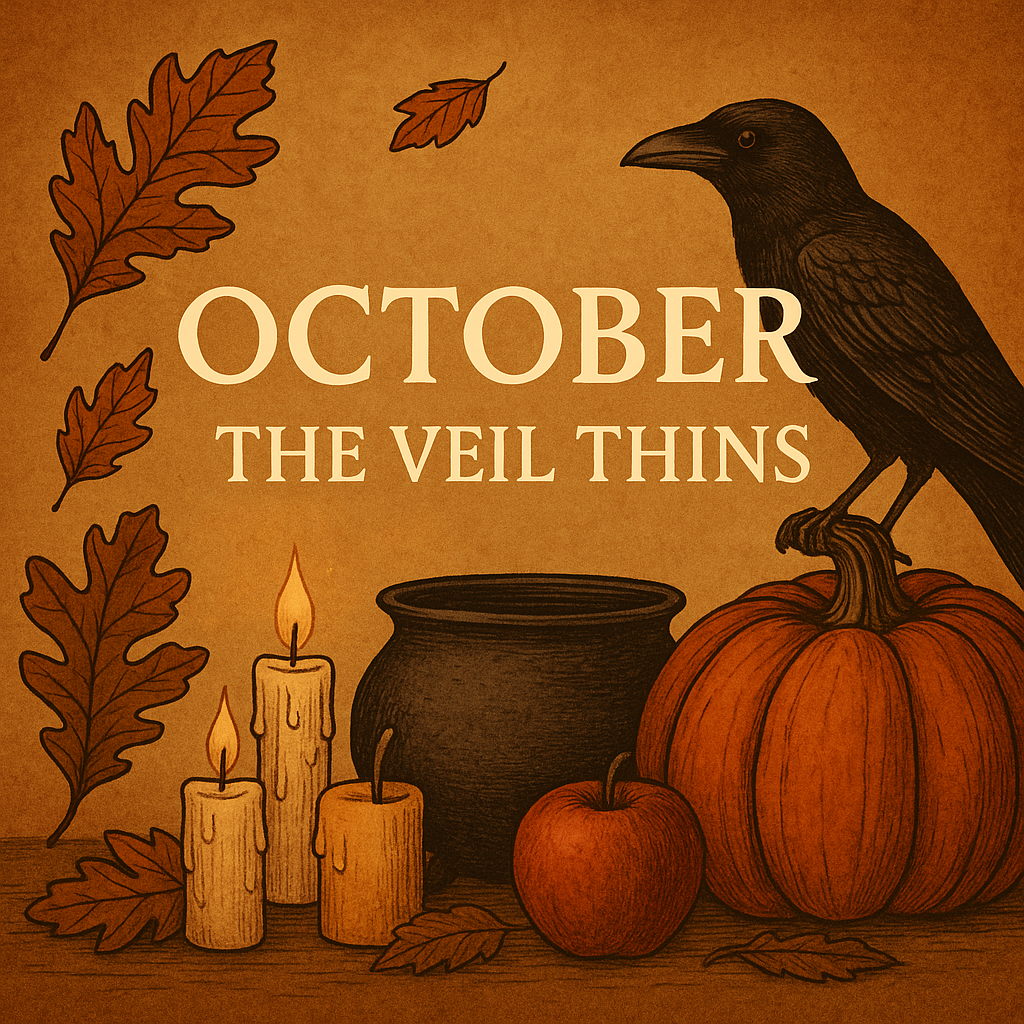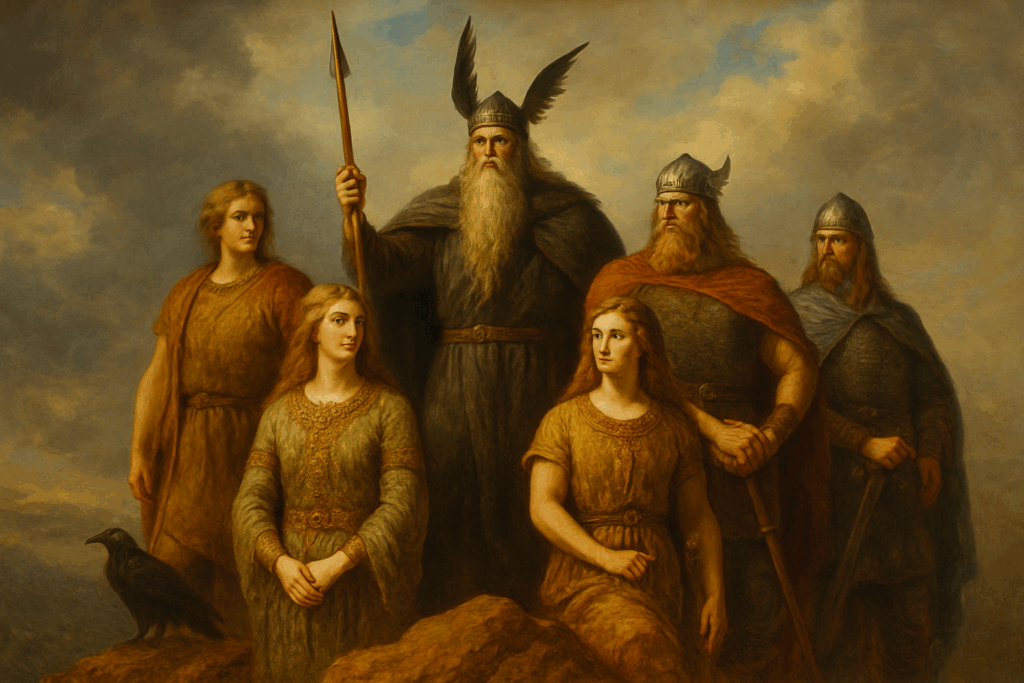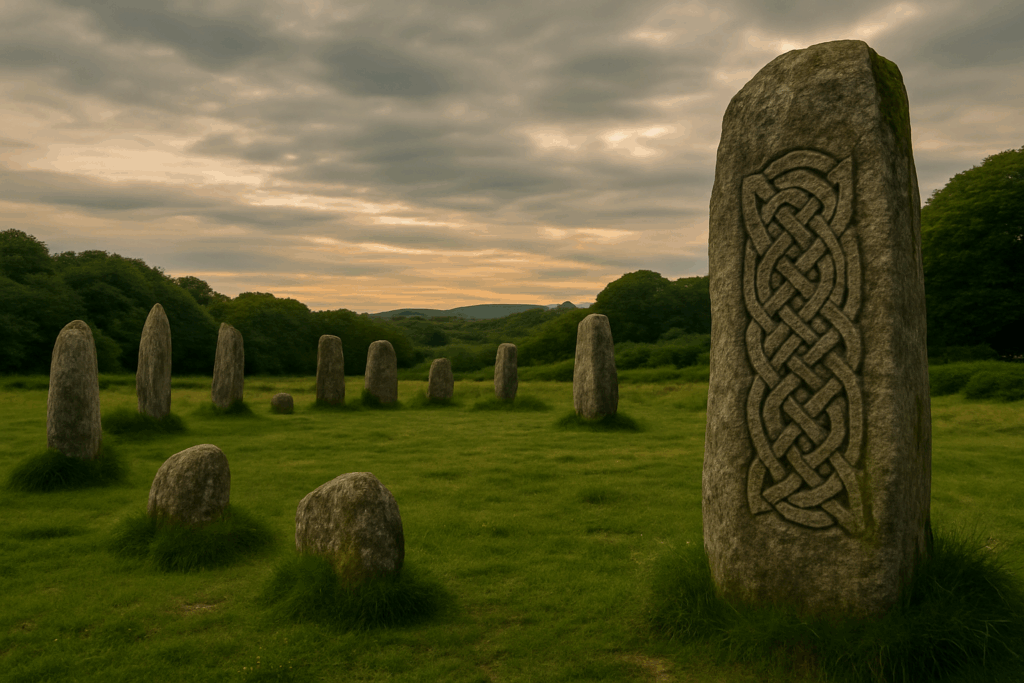🌑 November 10 – The Raven’s Prophecy

Messages from dark-winged guides and omens of change.
There is a sound in the late-autumn sky — a low, rasping call that echoes through the bare branches like a secret spoken in another tongue. The raven has returned to the northern winds, dark against the pale horizon, its feathers gleaming with iridescent blue and violet light. On November 10, we enter the night of The Raven’s Prophecy, when the dark-winged ones circle closer to the mortal world, carrying messages from realms beyond sight. The air feels charged, the boundaries thinner, and within this stillness, meaning waits to be deciphered. The raven is not an omen of doom, as fearful minds once believed, but of transformation — the voice of mystery reminding us that every ending conceals a deeper renewal.
Ravens have long been sacred to those who listen for truth in shadow. Across myth and legend they appear as messengers, tricksters, guides, and keepers of hidden knowledge. To the Celts, they were birds of prophecy and battle, sacred to the Morrígan, the phantom queen of fate who flew over fields of transformation, not destruction. To the Norse, they were companions of Odin — Huginn and Muninn, Thought and Memory — who traveled the worlds each day to bring him news of all that was, is, and could be. To the Druids, ravens were the voices of the Otherworld, their flight patterns and cries studied as oracles of divine intention. The raven’s blackness was not a symbol of evil, but of depth — the fertile darkness of the womb, the night sky that births the stars.
To hear the call of the raven on this day is to be invited into awareness. It is the sound of the soul awakening to a message that has waited beneath the noise of daily life. Ravens do not speak in language but in symbol. Their appearance, their timing, their direction of flight — these are the signs through which spirit communicates. If you see a raven today, pause. Listen inwardly. The message is rarely literal; it arrives as intuition, a sudden knowing, a shift in perception. The raven teaches us to trust the unseen, to find wisdom in the ambiguous, and to move fearlessly through change.
The Raven’s Prophecy is not about fortune-telling but about discernment — the ability to perceive patterns where others see chaos, to hear meaning in silence. The raven is a teacher of thresholds. It flies between worlds, dwelling in the liminal spaces that connect life and death, light and dark, known and unknown. Its feathers shimmer not with one color but with many, a living symbol of paradox and balance. To walk with the raven’s energy is to accept that truth is often complex, multifaceted, and hidden within mystery. The spiritual seeker who welcomes the raven must be willing to stand at the edge of understanding and listen with the whole self.
Tonight’s meditation may begin with sound. Step outside, if you can, beneath the gray November sky or into the early dark. Close your eyes and listen — to wind, to distant wings, to your own breath. Ravens, like the wind, rarely stay still. Their energy is movement, transition, intelligence in flight. Breathe deeply and imagine a great raven descending through the air, its wings whispering as it lands before you. In your mind’s eye, meet its gaze — black and reflective as obsidian. Within that gaze, you may see not fear, but clarity. The raven asks no questions; it reveals them. What are you afraid to know? What change do you resist? What truth waits in your shadow? These are the riddles the raven brings.
In magical traditions, the raven’s feathers were kept as talismans of insight and protection. They were said to absorb negativity and reveal deception. Symbolically, the feather represents the ability to rise above illusion and view the world from a higher vantage. If you find a feather or even imagine one in meditation, hold it as a reminder of perspective — that not all endings are losses, that sometimes flight requires falling first. Ravens do not fear the night; they are the night’s own poetry in motion.
The Raven’s Prophecy is also a reflection on communication — between the self and the unseen, between intuition and intellect. Ravens are mimics, capable of echoing the sounds of other creatures, even human voices. This quality reflects the human mind’s own gift and peril: our tendency to repeat what we hear rather than to speak from truth. The raven asks us to listen beyond echoes, to find the voice that is truly ours. What truths do you carry that others have silenced? What wisdom in you waits to be spoken aloud? The raven’s call reminds us that prophecy is not only about predicting the future, but about speaking truth to the present.
In Celtic myth, the Morrígan herself often appeared as a raven or crow upon the battlefield — not to revel in death, but to oversee transformation. The battlefield was symbolic, as all spiritual battlegrounds are: the struggle within each soul between fear and courage, ignorance and awakening. To see the raven circling above was to know that change had already begun. The Morrígan’s raven did not destroy — it witnessed. It bore testimony to the end of one cycle and the birth of another. Thus, to receive the raven’s message today is to be acknowledged as one standing upon that threshold of change.
The prophecy of the raven rarely speaks in specifics; rather, it stirs awareness. It may come as restlessness, as synchronicity, as dreams filled with dark wings and bright eyes. The message may be simple: Pay attention. Or it may whisper something more profound: You are shedding what no longer fits your becoming. Prophecy is not destiny — it is dialogue. The raven does not dictate your path but reminds you that your choices carry power. Its cry through the chill air says, The time has come to act with clarity and courage.
If you wish to honor the raven in ritual, light a candle of black or deep purple — colors of mystery and intuition. Place before it something reflective, such as a bowl of water or a piece of obsidian, symbolizing the mirror of truth. As you gaze into the dark surface, ask for insight into the transformations unfolding in your life. You may not receive an answer in words, but in image, feeling, or awareness. The raven’s wisdom rarely arrives immediately; it reveals itself through reflection over time, as the mind learns to interpret the language of symbol.
The raven also invites gratitude — for its message, for the courage it awakens. Offer it something in return: a few seeds scattered upon the ground, a whisper of thanks to the wind. The offering is not for the bird itself but for the energy it embodies — the spirit of curiosity, resilience, and transformation. By acknowledging it, you align yourself with those same qualities. You become, in a sense, your own messenger, carrying insight between the seen and unseen realms of your experience.
As night deepens, step again beneath the sky. Look upward and imagine the ravens soaring in the moonlight, their wings tracing patterns of meaning across the stars. Their flight is a reminder that guidance does not always descend; sometimes it comes from above, carried by the wind, glimpsed only in motion. Listen for that deep, resonant call — the one that sounds both mournful and alive. It is the sound of prophecy itself: the recognition that change has already arrived, and that within it lies liberation.
The Raven’s Prophecy teaches that not all darkness is despair; some darkness is revelation. The black feathers of the raven gleam with hidden light, just as the unseen aspects of our lives hold potential not yet realized. To honor the raven is to honor the mystery — to live with questions rather than fear them, to walk with uncertainty as a companion instead of an enemy.
When dawn comes, and the frost gleams upon the fields, you may hear the ravens calling once more — harsh and beautiful, like laughter from another age. Let that sound anchor you to the present moment. Let it remind you that prophecy is not far away, but ever near, waiting in the edges of perception. The raven flies not to frighten, but to awaken. Through its wings, the soul remembers how to listen again — deeply, intuitively, fearlessly.





